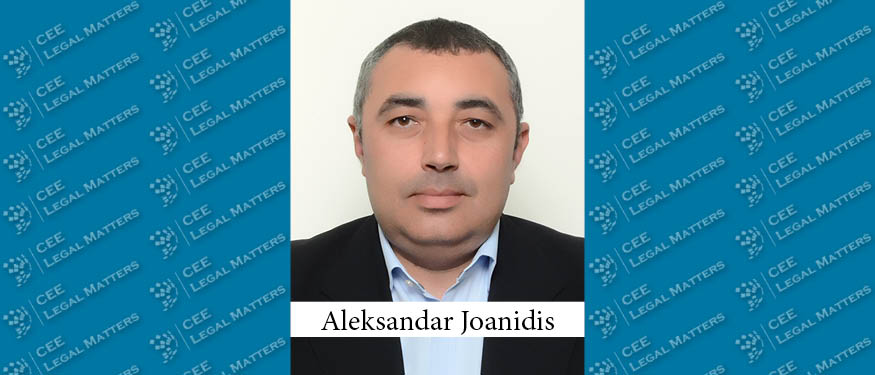The recent dismissal of Vesna Dameva from her position as President of the Judicial Council of North Macedonia was both surprising and concerning – and could spell disaster for the country’s judicial system – according to Law Firm Joanidis Partner Aleksandar Joanidis.
“There is no bigger topic in Macedonia right now,” Joanidis begins. “The dismissal was illegal, in my opinion, as there is no legal ground to terminate the President of the Judicial Council, outside of their mandate naturally expiring,” he points out.
Joanidis explains that Dameva “was dismissed with a majority vote of the Judicial Council, which had no precedent, and no basis in law – it has never happened before since the council’s establishment – but the development itself is now a precedent.” He says he’s both disappointed and worried: “This is the body that oversees the nomination of judges and stands as the guarantor of the legality of courts functioning in general. Which is why it’s such a problem when the council does not obey the laws that should apply to it. There’s an erosion of the belief that the judges it appoints and the courts it oversees will themselves obey the law.”
To make matters worse, Joanidis highlights that “a significant number of judges have retired of late. We have courts with no appointed judges and no new appointments coming. Or worse, there are doubts on the legality of those judges’ appointments.” As he sees it, “the courts are not functioning according to the law. So, we are being left to our devices. Which is a very dangerous situation that’s quite toxic in practice. We’re still hoping that the debacle in the judicial system will be addressed, but no news so far.”
This is why Joanidis finds the Judicial Council’s decision to go out on a limb so odd. “It has created such an inconvenient situation, casting a shadow on court practice in general,” he says. “We became lawyers – and we advise clients – with the understanding that our advice should incorporate the evolution of court practice. It’s not just a dry recitation of legal texts. And it should not have to come with a ‘This was the practice thus far, but since yesterday that’s all out the window’ disclaimer.”
In practice, this unprecedented situation means uncertainty for clients and a shift in the role of lawyers. “We’re trying to help clients avoid the courts,” Joanidis says. “We’re advising them to get everything they can get done through a Notary Public, a Judicial Officer, or executive clauses in contract writing – to be able to bypass the whole court situation and minimize disputes. We’re creatively trying to protect the rights of our clients as well as their enforcement later.”
The final nail in the coffin, Joanidis points out, is the judges' and the authorities’ silence on the matter. “So far, no statement has been issued by Parliament (which appoints people to the Judicial Council). The worst of it is that the judges themselves, and the courts, are being quiet. There were no opinions expressed on this unprecedented development. Once you’re disappointed by the courts,” Joanidis concludes, “your belief in the whole system fades. We’re in court every day – we expect justice to be served there – if the legality principle is being ignored, all expectations fly out the window.”
















